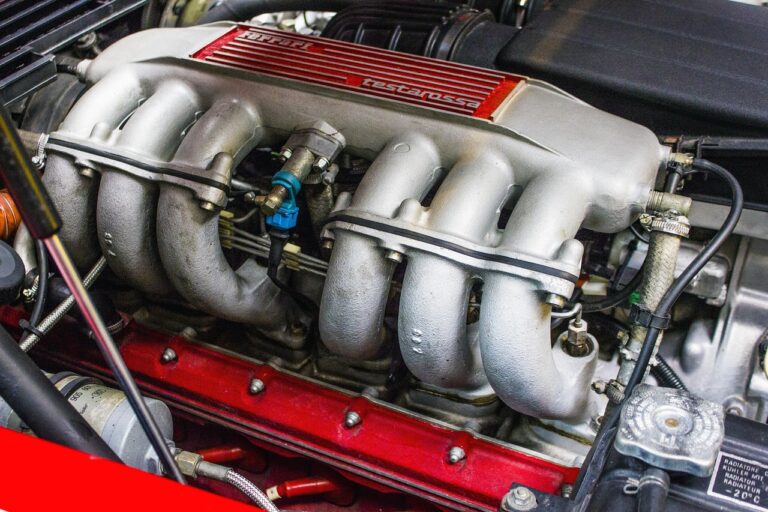How to Manage Automotive Logistics for Diverse Market Needs: Allpaanel, Mahadev book login registration, Cricket id online
allpaanel, mahadev book login registration, cricket id online: Automotive logistics is a crucial aspect of the automotive industry, as it involves the planning, coordination, and management of the transportation and storage of vehicles, parts, and components. The automotive industry is vast and diverse, with various market needs that must be met to ensure the smooth flow of products from suppliers to manufacturers to dealers and ultimately to customers. In this blog post, we will discuss how to effectively manage automotive logistics to cater to the diverse market needs of the industry.
Understanding Market Needs
Before delving into the specifics of managing automotive logistics for diverse market needs, it is essential to understand what these needs entail. The automotive market is characterized by factors such as varying demand for vehicles in different regions, different regulations and standards in different countries, and the need for efficient delivery of parts and components to production facilities. Additionally, customer preferences and trends also play a crucial role in shaping market needs.
With such diversity in mind, automotive logistics managers must be proactive in anticipating and addressing these market needs to ensure the efficient and timely delivery of products. This requires a combination of strategic planning, effective communication, and the utilization of advanced technologies to optimize logistics processes.
Key Strategies for Managing Automotive Logistics
1. Demand Forecasting and Planning
One of the key strategies for managing automotive logistics for diverse market needs is demand forecasting and planning. By analyzing historical data, market trends, and customer preferences, logistics managers can forecast demand accurately and plan production and transportation schedules accordingly. This helps in avoiding stockouts, reducing inventory costs, and improving overall supply chain efficiency.
2. Efficient Transportation Management
Transportation plays a crucial role in automotive logistics, as vehicles, parts, and components need to be transported from suppliers to manufacturing plants, distribution centers, and dealerships. To meet diverse market needs, logistics managers must optimize transportation routes, modes, and carriers to ensure cost-effective and timely deliveries. This may involve using a mix of road, rail, air, and sea transport depending on the specific requirements of each market.
3. Inventory Management
Effective inventory management is essential for catering to diverse market needs in the automotive industry. By maintaining optimal inventory levels, logistics managers can reduce lead times, improve order fulfillment rates, and mitigate the risk of stockouts. Utilizing technology such as inventory management software and RFID tracking can help in monitoring inventory levels in real-time and streamlining the replenishment process.
4. Collaboration with Suppliers and Partners
Collaboration with suppliers and partners is crucial for managing automotive logistics effectively. By establishing strong relationships and communication channels with suppliers, logistics managers can ensure the timely delivery of parts and components, reduce lead times, and improve overall supply chain visibility. Collaborating with logistics providers and third-party vendors can also help in expanding capabilities and meeting diverse market needs.
5. Compliance with Regulations and Standards
The automotive industry is subject to strict regulations and standards in different countries and regions. Logistics managers must ensure compliance with these regulations to avoid delays, penalties, and disruptions in the supply chain. This may involve obtaining necessary permits and certifications, adhering to safety and environmental standards, and implementing quality control measures throughout the logistics process.
6. Continuous Improvement and Innovation
In a rapidly evolving industry like automotive logistics, continuous improvement and innovation are key to staying competitive and meeting diverse market needs. Logistics managers should continuously monitor performance metrics, gather feedback from stakeholders, and identify areas for improvement in processes and technologies. Investing in new technologies such as IoT, AI, and blockchain can also help in streamlining logistics operations and enhancing supply chain visibility.
FAQs
Q: How can automotive logistics managers optimize transportation costs?
A: Automotive logistics managers can optimize transportation costs by consolidating shipments, using intermodal transport solutions, negotiating favorable contracts with carriers, and leveraging technology for route optimization.
Q: What role does supply chain visibility play in managing automotive logistics?
A: Supply chain visibility is crucial for managing automotive logistics as it allows logistics managers to track the movement of vehicles, parts, and components in real-time, identify bottlenecks and inefficiencies, and proactively address issues to ensure on-time delivery.
Q: How can automotive logistics managers ensure compliance with regulations in different countries?
A: Automotive logistics managers can ensure compliance with regulations in different countries by staying up-to-date with changing laws and standards, obtaining necessary permits and certifications, and partnering with local experts and regulatory authorities for guidance.
In conclusion, managing automotive logistics for diverse market needs requires a combination of strategic planning, efficient transportation management, effective inventory control, collaboration with suppliers and partners, compliance with regulations, and continuous improvement and innovation. By implementing these key strategies and addressing market needs proactively, automotive logistics managers can streamline operations, reduce costs, and meet the demands of a dynamic and competitive industry.







